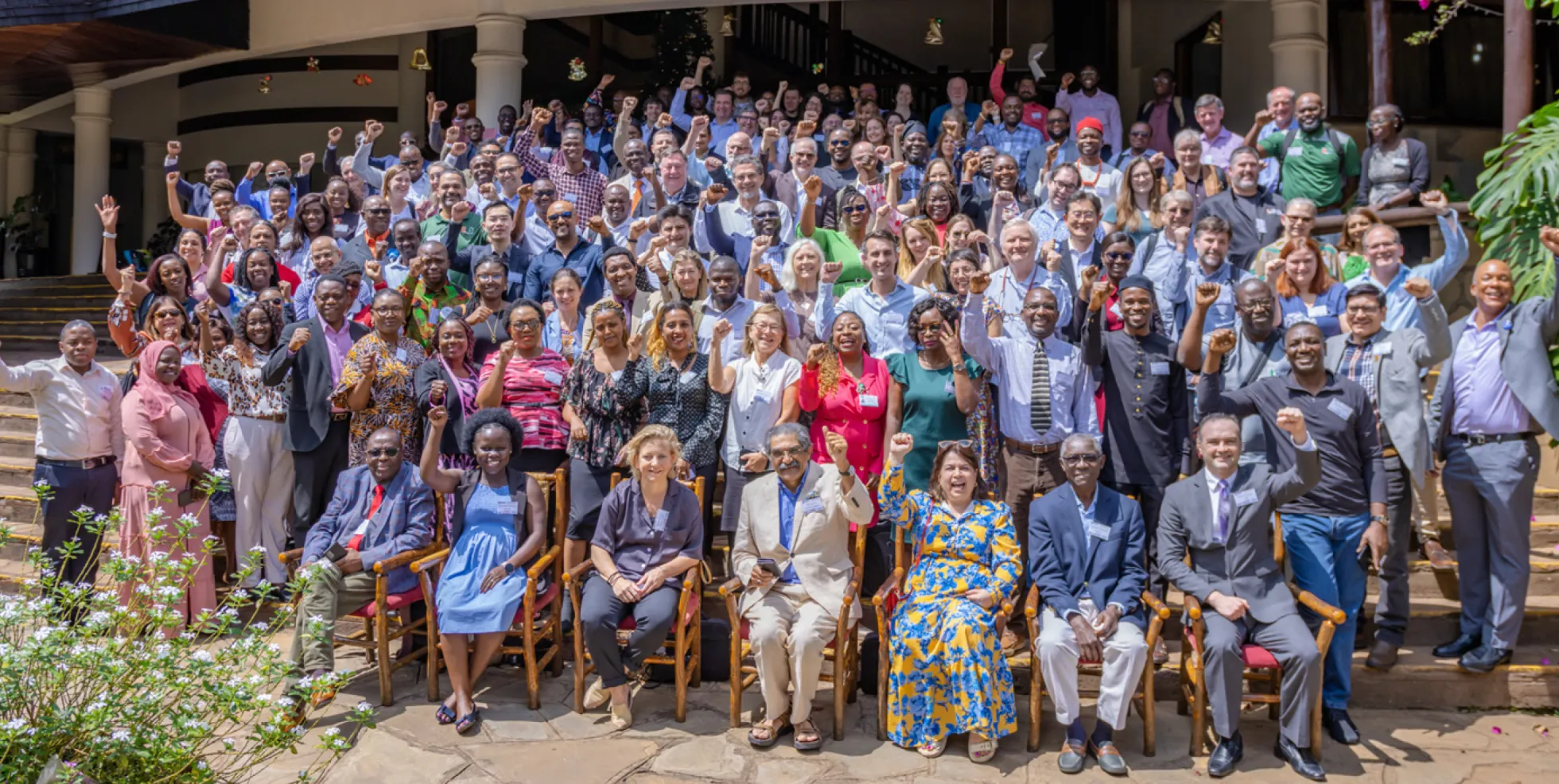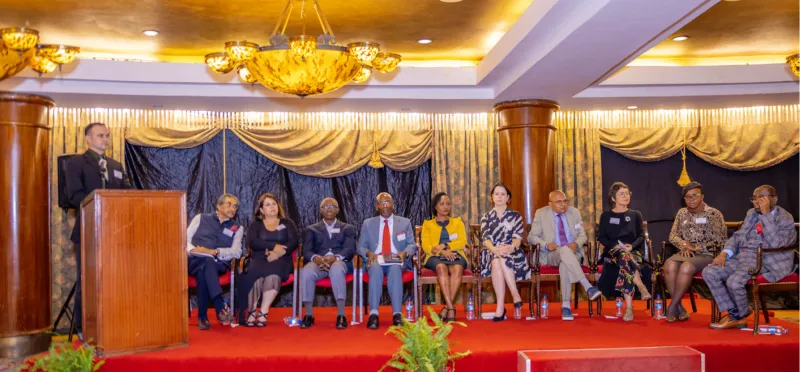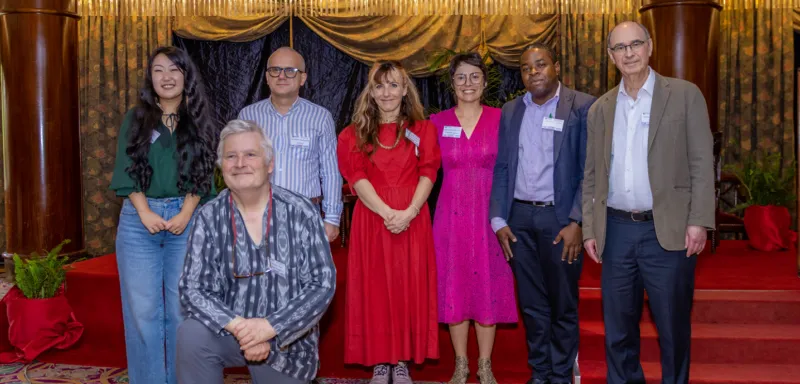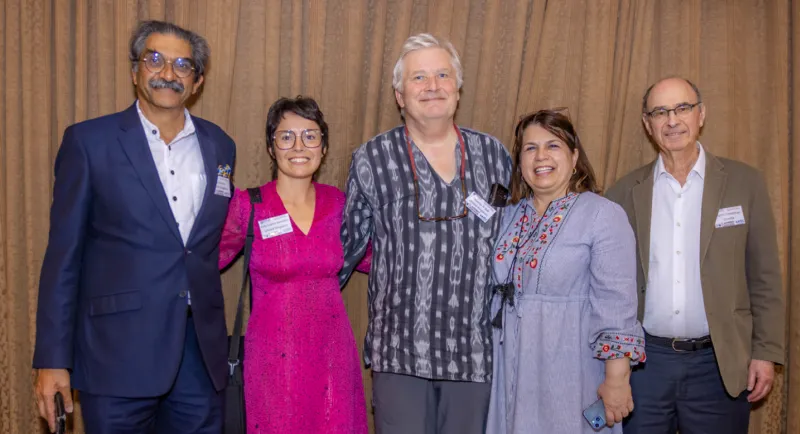
Chairs and delegates at the Dementia and Brain Aging in Low- and Middle-Income Countries 2024 conference.
Authors: By Dr. Aida Suárez-Gonzalez, Prof. Morris Freedman, Dr. Thomas Bak, Prof. Adesola Ogunniyi, Prof. Gladys E. Maestre, and Prof. Raj Kalaria
Editor's Choice
World Neurology | Article posted on June 23, 2025
Link: https://worldneurologyonline.com/article/from-nairobi-with-commitment
Symposium highlighted brain health and aging findings for low- and middle-income countries.
Dementia and Brain Aging in Low- and Middle-Income Countries, a symposium held Dec. 3-6, 2024, in Nairobi, Kenya, marked another milestone in global efforts to advance equitable brain health. Hosted at the Safari Park Hotel, the event brought together more than 200 delegates from Africa and the world, representing a wide spectrum of researchers, clinicians, and policymakers. The setting underscored the meeting's purpose: to center the voices, knowledge, and experiences of those working within low- and middle-income countries (LMICs), where the burden of dementia is growing rapidly.
The World Federation of Neurology (WFN) Aphasia, Dementia, and Cognitive Disorders (ADCD) Specialty Group was honored to participate with a dedicated session and a presence throughout the meeting. In her opening remarks, WFN ADCD Chair Dr. Aida Suárez-González reaffirmed the WFN's longstanding support of this symposium and its commitment to continue investing in regional partnerships, scientific exchange, and capacity building.
Scientific Highlights
The program, co-led by Profs. Gladys Maestre and Raj Kalaria, featured sessions on the global burden of dementia, vascular and cardiometabolic risk factors, and genetic studies of Alzheimer's disease in African populations. The African Dementia Consortium (AfDC) held its general assembly during the meeting, further solidifying a Pan-African agenda for brain health research and policy. The Recruitment and Retention for Alzheimer's Disease Diversity Cohorts in the Alzheimer's Disease Sequencing Project (READD-ADSP) consortium presented new findings from African cohorts, showcasing the continent's essential role in shaping global neuroscience.
The WFN ADCD session, "Aphasia and Cognitive Assessment," brought together experts addressing key challenges in global cognitive assessment and treatments. Speakers included Dr. Thomas Bak, Dr. Aida Suarez-Gonzalez, Prof. Morris Freedman, Dr. Elena Tsoy, Dr. Stella-Maria Paddick, and Prof. Panagiotis Alexopoulos. They explored topics including cognitive rehabilitation, digital diagnostics, hearing impairment in dementia, multilingual aphasia assessment, and telemedicine.
One of the week's major highlights was the official launch and celebration of Africa-FINGERS, co-chaired by Dr. Chinedu Udeh-Momoh and Prof. Zul Merali. This ambitious initiative adapts the successful Finnish prevention model from the FINGERS Brain Health Institute, representing a critical step toward scalable, lifestyle-based dementia risk reduction in Africa.
Early career researchers played a prominent role in the symposium, presenting across all sessions and participating in mentoring breakfasts, skills workshops, and dedicated networking events. Their involvement reflected a generational shift in leadership and capacity development.
The meeting also fostered strong interpersonal and cross-regional connections. Side events on health system integration, HIV and brain health, and publishing in global journals enriched the formal program. Discussions emphasized the need for context-specific solutions informed by local knowledge and practice.
The WFN ADCD was honored to contribute to the Nairobi program and to stand alongside colleagues advancing the future of brain health in LMICs. Our next engagements will be the World Congress of Neurology in October in Seoul, South Korea, and our biennial meeting in Noosa Heads, Australia, in 2026. We look forward to returning to Africa for the next Dementia and Brain Aging in Low- and Middle-Income Countries conference in late 2026. •











